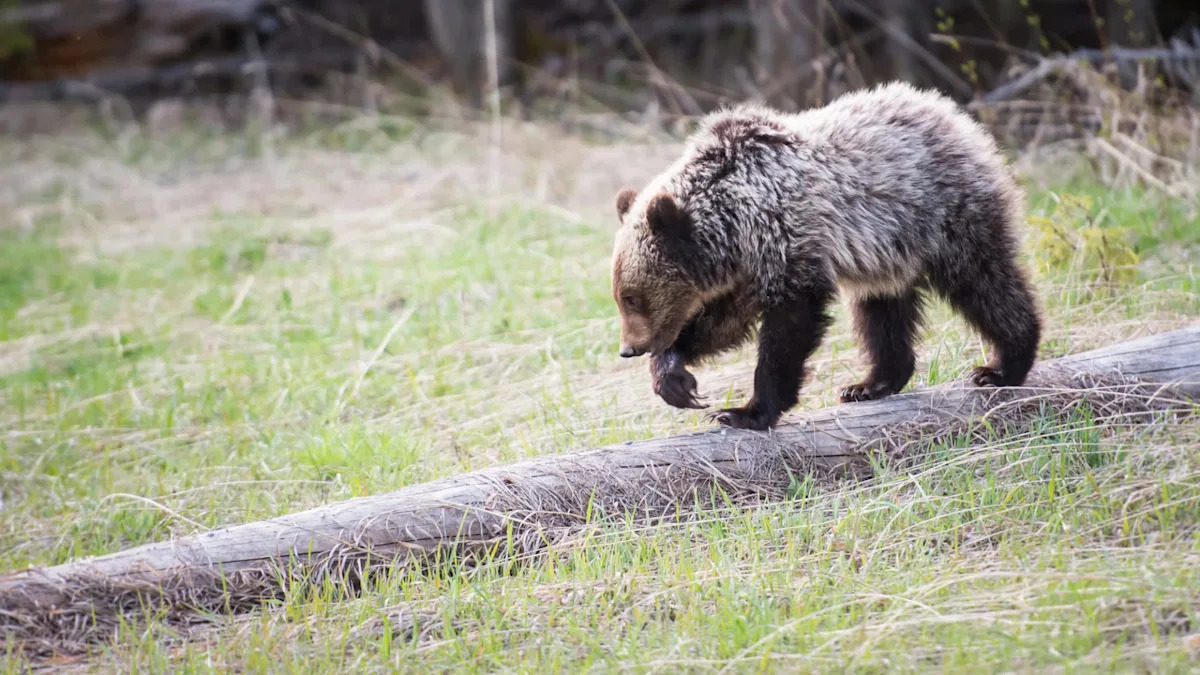Because of successful conservation efforts and habitat protection, grizzly bears are thriving in Montana, but farmers aren’t necessarily thrilled about the news.
The animals have started roaming on their properties, stealing food, and becoming a threat to their young children. But livestock guardian dogs are making farm life much safer for both bears and humans alike.
As the New York Times reported, grizzlies are protected under the Endangered Species Act, which has allowed their populations to increase dramatically over the past 50 years. As a result, the bears have expanded their territory into new areas, including those near human development.
Conveniently for the bears, populated areas have more food availability, and as the bears scavenge for grains and other foods grown on farms, it increases the risk of human-wildlife conflicts.
That’s why farmers in Montana have started employing “bear dogs” to protect their families and food supplies, and so far, it seems to be working quite well.
Steve and Julie Ahrens, who have been farming wheat, barley, and chickpeas in northern Montana for nearly half a century, were eager for a solution after four grizzlies showed up on their land in 2020. When the bears figured out how much food they kept in grain bins on the property, their visits became much more frequent.
The couple decided to call Wesley Sarmento, a former bear manager for Montana’s wildlife agency, for help, but unfortunately, attempts to keep the grizzlies away using electric fencing, traps, and alarms were unsuccessful. And after hearing that a bear killed dozens of chickens at a nearby farm, he knew a longer-term solution was needed — and fast.
Later in 2020, another farmer told him that once his son brought home a livestock guardian dog, their bear problems disappeared. Large dogs such as shepherds have been used for centuries to keep carnivores away from livestock and people, and now that bears are making a comeback, these gentle giants are once again being called to do what they do best: protect.
Sarmento teamed up with Julie Young, an ecology professor at Utah State University, to study how well three Turkish breeds — the Kangal, the Boz, and the Anatolian — could keep bears from infiltrating farms and asked several local farmers, including the Ahrenses, if they would participate.
When Billy, a Kangal, first arrived on their farm, they admittedly were a bit worried about how he would mesh with their family and other animals. But after a few weeks, he fit right in, and he’s been scaring bears away from their property for years.
In fact, the Ahrenses reported zero bear sightings until earlier this spring when a mother and her cubs wandered onto their yard. Overall, though, Billy’s had an impressive track record for keeping the family safe, and other farmers have also noticed the benefits of having the guard dogs around.
The study, which was published in Biological Conservation, found a 90% decrease in bears within 1,000 feet of the four farms that received bear dogs. In addition, there were 58-fold fewer camera-trap detections of bears visiting farms with guardian dogs compared to farms that did not have dogs.
While further research is needed, the results are promising and show that bears and humans can coexist with the help of man’s best friend.
At Stick Leg Ranch, where a bear killed farmowner Seth and Jennie Becker’s chickens, the new family pets — two Anatolian shepherds, Zia and Astra — have finally allowed life to return to normal on the farm.
“We love bears, but we also love that we now feel safer and that we’re not constantly worrying,” Jennie Becker told the Times.
Join our free newsletter for good news and useful tips, and don’t miss this cool list of easy ways to help yourself while helping the planet.

